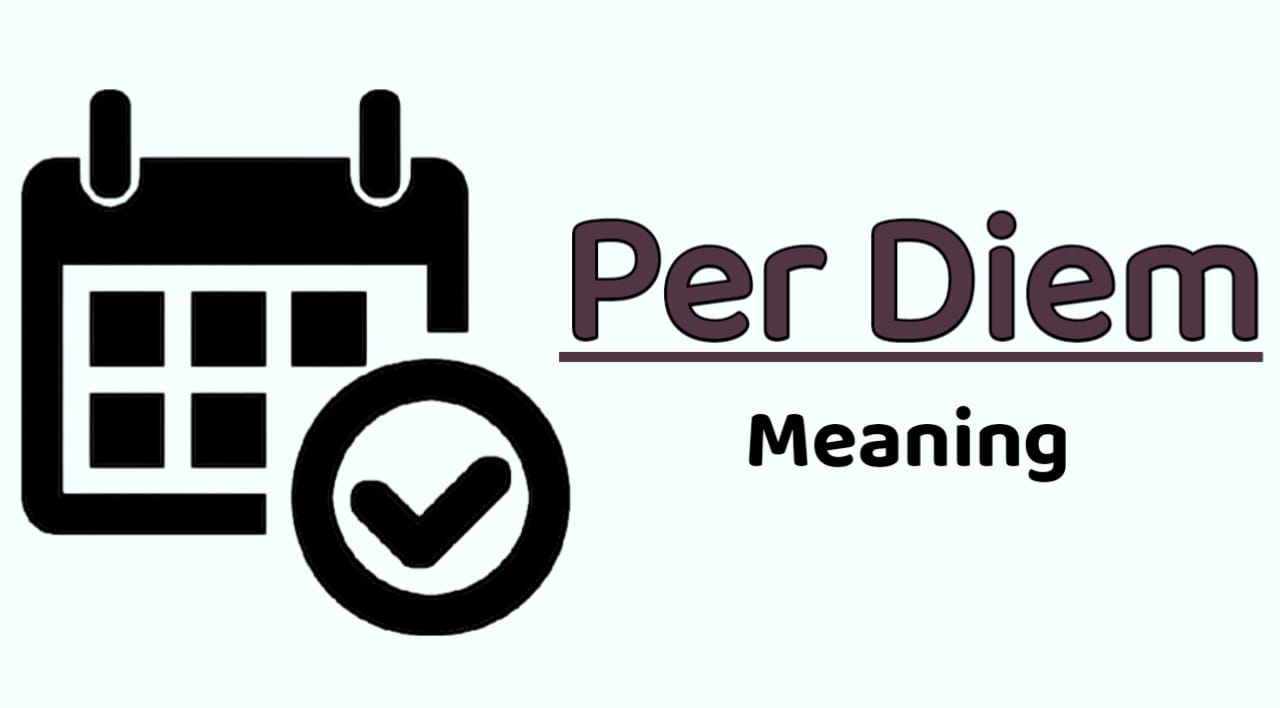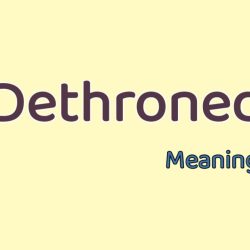Per Diem Meaning: If you’ve ever come across the term “per diem,” especially in the context of employment or travel, you might have wondered what it actually means.

What is Per Diem?
Per diem is a Latin term that translates to “per day.” In the modern context, it refers to a daily allowance or payment provided to employees or individuals to cover their daily expenses while they are away from home or on a specific task. This concept is commonly used in various industries and professions, offering flexibility in compensation.
The Origins of Per Diem
The concept of per diem has a long history, dating back to the ancient Roman Empire, where soldiers were given a daily allowance to cover their expenses. Over the years, this practice evolved and found its way into modern employment and business practices.
How Per Diem Works
Per diem works by providing individuals with a fixed amount of money for each day they are away from their home or regular workplace. This allowance is meant to cover expenses such as meals, accommodation, and other daily necessities. It simplifies expense management for both employers and employees.
Types of Per Diem
There are different types of per diem, each tailored to specific purposes. The most common types include:
1. Travel Per Diem
- Given to employees traveling for business purposes.
- Covers expenses like meals, lodging, and transportation.
2. Lodging Per Diem
- Covers expenses related to accommodation during travel.
- Ensures employees have a comfortable place to stay.
3. M&IE Per Diem (Meals & Incidental Expenses)
- Covers meal and other small expenses.
- Provides a daily allowance for food and minor costs.
Per Diem in Different Professions
Per diem is not restricted to a single industry. It is used in various professions, including healthcare, construction, and the gig economy. In healthcare, nurses and doctors often receive per diem payments for working on a temporary basis in different hospitals or clinics.
Pros and Cons of Per Diem
Pros:
- Offers flexibility in compensation.
- Simplifies expense management.
- Encourages cost-conscious behavior.
Cons:
- Can vary widely by location.
- May not provide job security.
- Could have tax implications.
Tax Implications of Per Diem
Understanding the tax implications of per diem is essential. While it is a non-taxable reimbursement for expenses, the IRS has specific rules and guidelines for its treatment. It’s crucial for both employers and employees to be aware of these regulations to avoid any tax-related issues.
Related : My Love Mine All Mine Meaning
Per Diem vs. Salary
Per diem and salary are two different compensation structures. Per diem provides daily allowances for expenses, while a salary offers fixed monthly or yearly payments. Each has its advantages and disadvantages, and the choice often depends on the specific needs and circumstances of both employers and employees.
Per Diem Rates
The per diem rates vary from one location to another. The U.S. General Services Administration (GSA) sets standard per diem rates for federal employees, which can serve as a reference point for many businesses. These rates are influenced by the cost of living in a particular area.
Per Diem in Travel
Travelers often rely on per diem to manage their expenses during trips. It not only simplifies the accounting process but also allows travelers to focus on their work rather than worrying about financial matters.
Per Diem in the Gig Economy
With the rise of the gig economy, per diem has become more prevalent. Freelancers, independent contractors, and temporary workers often negotiate per diem rates as part of their compensation, ensuring they are adequately compensated for their work and related expenses.
Per Diem and Work-Life Balance
One of the advantages of per diem is that it can provide a better work-life balance. It allows individuals to choose when and where they work, which can lead to a more flexible and fulfilling lifestyle.
Per Diem in the Future
As the nature of work continues to evolve, per diem is likely to remain a relevant compensation method. Its flexibility and adaptability make it suitable for the changing needs of both employers and employees.
Conclusion
In conclusion, per diem is a versatile compensation model that has its roots in ancient times. It simplifies expense management, offers flexibility in various professions, and can contribute to a better work-life balance. While it has its pros and cons, understanding the tax implications and using it wisely can make it a valuable part of modern employment practices.






